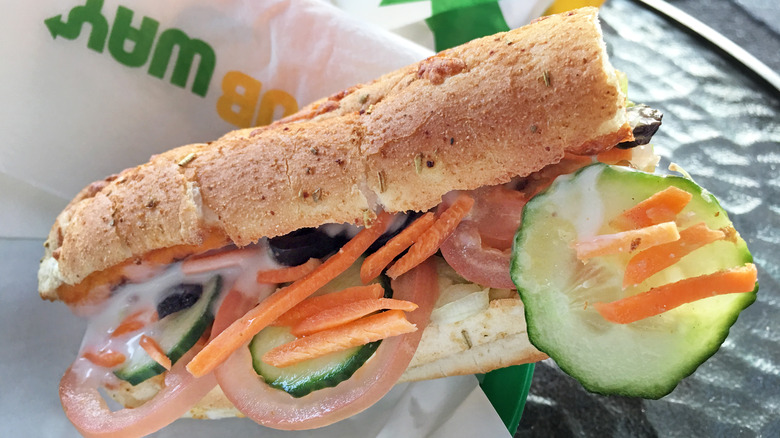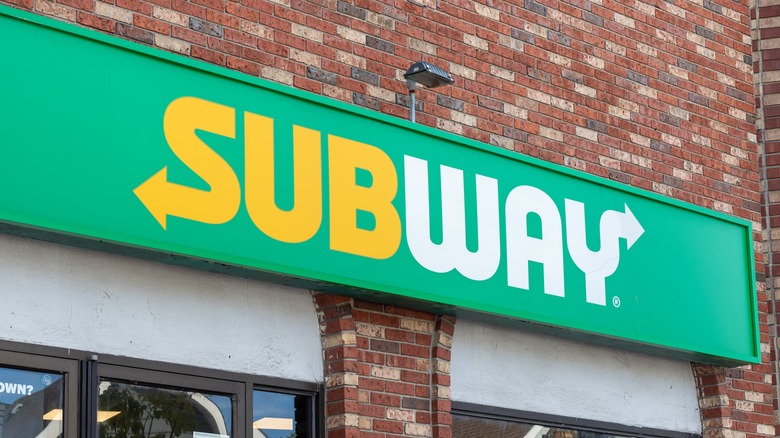Seriously, Ireland Doesn't Classify Subway's Bread As Real Bread
Subway as a corporation is no stranger to controversy. Once the largest fast food chain in the world, the company has attracted plenty of negative headlines before. There was the time Subway had to make sure its footlongs were actually 12 inches in response to customer outcry, not to mention that its franchising practices are regarded by some as exploitative enough that they led to an entire main segment on "Last Week Tonight." This isn't even getting into product quality, where employees at Subway insist there are plenty of things you shouldn't order.
But perhaps no negative headline about Subway's offerings has ever been more comical than when an entire country decided its bread could not legally be considered bread. In 2020, the Republic of Ireland's Supreme Court declared that because of its sugar content, Subway bread is not bread, thanks to a 1972 law, labeling it more similar to cake. This actually had significant tax implications for the company.
The ruling specifically applies to tax issues
Without getting too far into the regulatory weeds, the takeaway here is that Ireland's Value-Added Tax Act of 1972 allows certain items to attain tax-exempt status, meaning they're not subject to additional financial burdens (in this case, a 13.5% tax). One of these is bread, which is marked under the law as a "staple food." The problem for Subway is that the VAT Act declares tax-exempt bread can't have more than 2% of its flour weight consists of sugars, fats, or other ingredients designed to artificially enhance the end product. Subway's bread blows well past that mark in terms of sugar, which makes up a whopping 10% of its flour weight. As a result, the Irish Supreme Court ruled in late 2020 that Subway bread couldn't be called bread for tax purposes.
Subway was less than pleased about this ruling, telling the BBC at the time that "Subway's bread is, of course, bread." Since the ruling was handed down by the Supreme Court, though, there was nowhere for them to go with it. To this day, Subway bread is not legally considered bread in the Republic of Ireland.
Subway has had PR issues surrounding questionable bread before
This, of course, isn't the only time Subway has gotten into hot water over their bread, nor is Ireland the only country where the company has faced skepticism regarding its quality. In 2014, blogger Vani Hari (also known as "FoodBabe"), brought attention to the fact Subway's bread contained a chemical known as azodicarbonamide — one also present in products like shoe soles and yoga mats. Used as a dough conditioner and flour bleaching agent, the FDA considers azodicarbonamide safe, but it's banned in the U.K. and European Union.
Whether or not it's safe, though, the company was not a fan of the negative publicity associated with having yoga mat ingredients in its food, so Subway quickly removed the chemical from its bread. The entire episode wasn't entirely fair to Subway; the company was hardly the only one using azodicarbonamide, as 500 foods contained it, making it one of the more questionable ingredients broadly hiding out in fast food. Other chains like McDonald's, Chick-fil-A, and Wendy's also got rid of it in their products in response to the heat heading Subway's direction.


